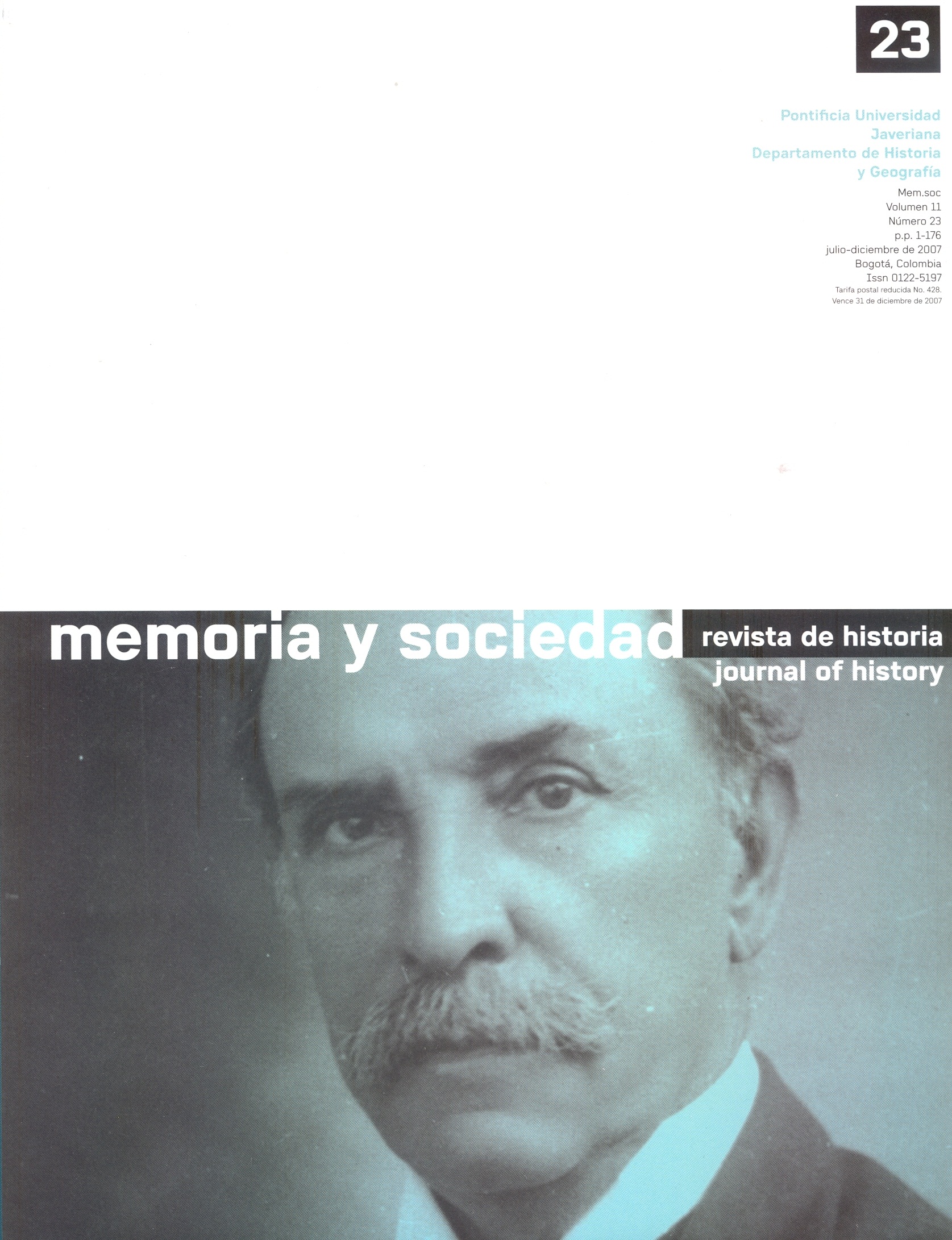Resumo
Este trabajo tiene como propósito rastrear, desde la Historia Epistemológica de los Saberes y las Prácticas Científicas, la formación, usos e implicaciones de la Filosofía Experimental en Colombia entre 1826 y 1910. Para ello, se analizan los dos períodos en los que se desarrollo esta escuela filosófica. Se encontró que, aunque en ambos períodos dicha escuela se sostiene sobre las mismas preguntas y un mínimo concepto, durante el período sensualista la Filosofía Experimental estuvo conformada por la Ideología, la Gramática General y la Lógica y su método era el método racional; mientras que en el período positivista estuvo conformada por la Lógica, la Psicología, la Biología y la Sociología y su método era el método experimental.A revista Memoria y Sociedad encontra-se registada sob a licencia Creative Commons Versão 4.0 Internacional. Portanto, esta obra pode se reproduzir, distribuir e comunicar publicamente em formato digital, sempre que dado o crédito apropriado para os autores e a Pontificia Universidad Javeriana. Permite-se citar, adaptar, remixar, transformar, autoarquivar, republicar e criar a partir do material, para qualquer fim, mesmo que comercial, sempre que indicado apropriadamente o nome do criador, provido um link para a obra original e indicado se mudanças foram feitas. A Pontificia Universidad Javeriana não retém os direitos sobre as obras publicadas e os conteúdos são responsabilidade exclusiva dos autores, os quais conservam seus direitos morais, intelectuais, de privacidade e publicidade.
O aval sobre a intervenção da obra (revisão, correção, edição, tradução, formatação) e a subsequente difusão disponibiliza-se através de licença de uso e não através de transmissão de direitos, o que representa que a revista e a Pontificia Universidad Javeriana são isentas de qualquer responsabilidade que puder se derivar de uma prática ética pobre por parte dos autores. Em consequência da proteção fornecida pela licença de uso, a revista não fica na obrigação de publicar retratações ou alterar informações já publicadas, a não ser que a errata seja decorrente do processo de gestão editorial. A publicação de conteúdos nesta revista não representa royalties para os contribuintes.

